|
From Wednesday To Friday would an offering of (fake) chicken and (real) waffles be too crass? would an offering of 1/4 a bottle of wine be too crass? sometimes i talk too fast, so listen- i can’t say for sure what pure love really is. if it’s holding pinkies in a safeway, if it’s laying in bed for an entire thursday, if it’s going through the bad, going through the terrible, trudging through mud for days only to end up with two rotten apple cores once an apple is eaten it can’t ever be the same and i want that love not just this fresh one, hardly skinned not just the one that feels soft to the touch i want the rough, i want the rot, the mold, the mildew that lines your ribs i’d like to take the bones from your tall frame and make a mildew-ridden shelter, have it collapse onto me nothing perfect can stay, and nothing that can fit into “perfect” is really pure and if that’s what’s pure, then i don’t want to be pure i want the apple cores, i want the rot, i want your mildew listen listen listen- there isn’t a way on earth to know how genuine any of the love we held together was i don’t trust anything anyways not my sister’s driving when i’m half-asleep not my own dreams when i’m all the way asleep not the way my two hands shake, keeping my own secrets a secret from myself, until it’s too late and one of my own character flaws skated under my nose, driving people away without me even knowing it i think i was in the right place at the right time, which was also you being in the right place at the right time listen, listen- love is tricky, it’s fickle, it’s something i always hope for but don’t know how to act around i want to shake love’s hand, ask how it’s doing, where it’s been, where it’s going but love doesn’t care for me, and love always gets pulled off fast from my mildewed body, sometimes just sliding off, too much sweat in the heat of the winter how can it be that i talk too much, but never enough? i think my phobia is love, okay, listen- whether any of the love we experienced was genuine, whether it was all made up, whether you fell in love with someone else the moment i left town, yours is a funeral i’d fly to from anywhere  Bio: Mason Mimi (they/them) is a poet, activist, student, and daycare worker based out of Portland, OR. They make zines, host open mics, and host a radio show/podcast series with some of their great friends as Big Things PDX (bigthingspdx.com).Their most recent collection of their own poems is also up on the Big Things PDX website, titled "Comes In Threes."
0 Comments
The Night Waiting It had happened to me before and she knew it. Yet when she didn’t come home at night the first time, my worry was still mixed with pain. People cheat on each other more often than they die in car accidents, I tried telling myself. As either of these two hypotheticals being confirmed meant, theoretically, a relief from the other, and as pain and worry alternated wildly within each passing hour, I still held on as much as I could to the notion that I preferred, all other things being equal, that she cheat on me rather than die. But the fact that she knew what had happened with my ex-wife, years earlier, made it hard to believe that she would decide to make me endure the same thing, had she now decided to cheat on me or leave me. A phone call, a lie or the truth, it’s not that difficult. No news at all, when a couple is settled in a decade-long quotidian of checking in on each other and caring for each other’s well-being and, within reasonable boundaries, each other’s whereabouts, no news at all carries a lot of weight. Knowing what she knew about my past, her silence tipped the scale of probabilities toward my least favorite option, the one in which she was unable to call, and therefore dead or gravely injured. With my ex-wife, fifteen years prior, it had been about a New Year’s party that I had refused to go to. I sometimes harbor antisocial behavior, but I am tolerant of other people’s social needs and when she insisted on going, I was fine with it, expecting her to come back some time during the wee hours. When I woke up the next morning and she wasn’t in bed next to me, I wondered. But she probably had overdrunk and crashed at a friend’s place, no big deal. When the whole day went by and I was still without news, I began to worry. Which was nothing compared to what I felt during the entire next night, when she still didn’t come home, nor call. Coincidentally, this was before the era of cellphones, and we lived in her hometown, far from mine, so I had only one land line number of friends of hers to call, which I did toward the evening of January 1st. There was no answer. What else was I supposed to do? I wasn’t sure if the situation warranted calling emergency services. So I just waited, suffered the alternate pangs of worry and jealousy, and she finally showed up at the front door of our apartment, in the early afternoon of January 2nd. She rang the bell and waited for me to come answer the door. The second that I saw her face, devastated and make-up smudged, she was forgiven. Inwardly, I mean, my heart broke for her and I felt protective of her, wanting to take care of her, which was the root feeling of future acceptance and forgiveness. Outwardly, it took a little bit more of a conversation to make things right between us. She admitted going to a man’s place, after the main New Year’s party, but with a girlfriend of hers coming along also. And that she had made out with the man, sure, but on that first night it was her girlfriend who ended up having sex with him. And on the second night, after the girlfriend left in the evening and she stayed over for more “partying”, he did try to have sex with her, and she was somewhat resisting, but the phone rang just as it was about to happen, so they were interrupted and then never quite got to it. I was 22 and believed her explanation. I am 38 now and believe that she lied. The “just the tip” type of lie which is supposed to make things morally OK, and often does, strangely enough, although everyone knows or should know that it doesn’t mean anything factual, only expresses a form of remorse that knows not to admit to anything unforgivable. With my second wife, I was 37 and upon showing up at 2 am., she told me that she had gone to dinner with a man, that afterwards they had kissed in his car, that it had been awkward and unpleasant, and that she regretted it. She also said that he was not nearly as good-looking as I am, which made everything sound more truthful, since I am nothing if not convinced of my good looks. Check me out online, I’m not blind, just also not humble. So I believed her. Yet I reminded her that the episode with my first wife had been traumatic for me, and that just answering her cellphone to let me know that she was safe (I had called and left probably 14 messages, with accelerating frequency, as the night went by), would have been an appreciated mark of consideration. As to the quasi-cheating, in a ten-year-long relationship, temptations arise and if it didn’t mean anything more, I would make do with it. I would just like not to be tortured, a whole night through, by the compounded fears of her death and of my being abandoned, every time that she felt like exercising her well-respected right to individual agency. I hoped that she understood. So when it happened again two nights later, I knew that it was over between us. Although it took another week for her to explicitly break-up with me, and over eighteen months and counting for me to stop having nightmares about it, I knew during that second night alone, when her cellphone repeatedly went to voice mail, when the noise of a car driving up the country road where we lived was not that of a car stopping, when the possibility of an accident was now ridiculously unlikely, I knew that no matter what else might be said or happen between us, no matter what precisely was or was not happening between her and that man, no matter what lies could be made up, nor how much hope I still felt of us somehow still having a future as a couple, I knew, with all rational certainty now, that it was over.  Bio: Antoine Bargel is a bilingual writer and literary translator working in English and French, poetry and fiction. Began writing poetry at 10, is now 34. Married and divorced twice, like in the story, but that could just be a coincidence. Other stories can be found on his website www.antoinebargel.com "I don't know if I have a God but my mother likes to think I have hers" begins Jersey Devil, the debut solo album of Brennan, a member of the Boston MA punk rock band Dazey and The Scouts, here we find a decidedly different sound, a mix of lo fi, tape deck folk in the tradition of The Velvet Underground and Bill Callahan. Brennan's vocal styling has a very earnest lived-in quality which comes across in these songs as if there is almost no separation, which is to say that we believe not only the authenticity of this music but also the voice that carries it. AHC: What has this journey in music, so far, been like for you, the highs and the lows, and what life lessons do you feel you've picked up along the way? Brennan: OH Wow wEE wWOW, music has been like a spouse to me. Sometimes I love it and sometimes I want to fucking murder it, but at the end of the day it always finds it’s way back to me. When I have a really good gig or write a good song I feel so refueled, ready to go tackle the next thing. The lows suck. They’re cold and grey, but you can change that and make really incredible art from harvesting that icky feeling. AHC: What first drew you to music and what was your early musical environment like growing up? Were there pivotal songs for you then that just floored you the moment you heard them? Brennan: The dinner table was one of the first places I was regularly exposed to music. James Taylor was popular with the parents, paired well with pork chops. Norah Jones made the brussels sprouts go down easy. I Can’t Make You Love Me by Bonnie Raitt knocked my socks off. Made me so damn depressed. WELCOME TO THE REST OF UR LIFE SISTER! My parents did a good job with exposing my brothers and I to important music. Not just background music. AHC: Do you remember the first song that you ever wrote or played? Or that first moment when you picked up a pen and realized that you could create whole worlds just by putting it to paper? Brennan: I wrote a lot of dumb little songs all the time, still do. Especially for school, like memorizing things for tests. The first song I wrote was about a frog in the military. Still haunts me. AHC: Which musicians have you learned the most from? Or writers, artists, filmmakers, teachers/mentors etc? Brennan: Recently, I’ve been learning a lot from my friends. Watching them practice, watching them perform, debriefing about it afterwards, etc. It’s thrilling to be able to be so chummy with these people during the day and then later that night watch them transcend and become one of the gods onstage. AHC: What do you think makes for a good song, as you're writing and composing, is there a sudden moment when you know you've found the right mix, that perfect angle of light, so to speak? Brennan: If YOU believe in the words you're singing, then other people will too. AHC: Do you consider music to be a type of healing art, the perfect vehicle through which to translate a feeling, a state of rupture/rapture, hope lost and regained? Does the writing and creating of the song save you in the kinds of ways that it saves us, the listener? Brennan: Music is dumb !!! It’s secondary and we don’t need it in our schools !!! I think that music is one of the most, if not the most essential basic human connection we have. For thousands and thousands of years, people have held music on a heavenly tier. We learn from stories, from other people’s experiences. Music has the power to mold brains, so make things that matter. Or not, whatever, it’s just music, right? AHC: What are your fondest musical memories? In your house? In your neighborhood or town? On-tour, on-the-road? Brennan: My uncle Chris and I always have played guitar and piano together at family events and it’s so fun, it makes my heart so warm. Simple musical experiences often leave the biggest smile on my heart. AHC: When you set out to write a song, how much does 'where the world is' in its current moment, culturally, politically, otherwise, influence the kinds of stories you set out to tell? Brennan: I make it a priority to stay informed and updated on the state of things in the world and use music as a vehicle for that. Political Folk was my first love, so I’m into writing about things that aren’t always flowery. Though Jersey Devil was a personal love letter that wasn’t very political, I’m working on putting out more music about social issues and everyday nonsense that affects us all. Now is the time to do it! We’re in a time where words matter and actions matter, so why not use art to make your voice a little louder. AHC: Do you have any words of advice or encouragement for other musicians and singer-songwriters out there who are just starting out and trying to find their voice and their way in this world? What are the kinds of things that you tell yourself when you begin to have doubts or are struggling with the creative process? Or what kinds of things have others told you that have helped push you past moments of self doubt/creative blocks? Brennan: If you’re having writer’s bock, listen to your heroes, heroes. That’s where the good stuff is. Sometimes I let myself stray too far into the dark and dreary world of writer’s block and use it as an excuse. But the only thing that can cure it is your ass in a chair and a pen in your hand. Don’t play mind games with yourself, even though it’s tempting. AHC: You just released your EP Jersey Devil last month, could you talk some about this record, how long did it take to write and put together, what the binding themes of this work are for you personally? Do you have any new projects moving forward or ideas that are percolating for the future? Brennan: That baby is hot, fresh and ready straight out of the WOMB like a Little Caesars pizza let me tell you! I took a little pilgrimage down to Jackson, New Jersey January 2017. My angel friend Gabe lives there and was nice enough to welcome me into his sweet hometown. There, I was introduced to Evan, the producer and head honcho at Coolman Music Productions which was the studio in the basement of The Moore House, the home of a family of three and a place of refuge to many of Jackson’s young artists. We recorded for three days and really got to focus on giving a real performance, on my own time. There were instances where it was 2 AM and we recorded on a pump organ from 1902. It was that casual energy that helped give this record that boost of character that it was crying out for. All of the songs on the record are about love, and how there are many different kinds of love. I wrote Queen Anna and Walking about a year and a half ago, and I wrote the last three very shortly before we recorded. Moving forward, I’m in the midst of writing the next record and playing some shows in support of Jersey Devil! The EP is on Spotify, iTunes, Youtube and all major streaming services!! Yeehaw! Jersey Devil available now via https://brennanw.bandcamp.com/album/jersey-devil https://play.spotify.com/album/3vXER6BR097dmpKEAoncRW Waiting for the End “With nowhere yet to rest my head, Like these, on earth I wait forlorn.“ -Matthew Arnold, Stanzas from the Grand Chartreuse It is human nature. We cling to our safe pasts, Wrapped around us like a familiar pink blanket-- Even when the soft wool becomes a stiff straightjacket, And we are strapped and trapped. Today, it transformed into a shroud-- While we mourn the end. Crisp linen wrapped, Tulips and lilies on my breast. Wandering between two worlds, One dead, The other awaiting birth. I lift the veil to light a candle for the lost. Tomorrow, it will be a parachute-- Strapped snugly, and I jump from the plane. I drop from the sky To fly on my chrysalis wings. 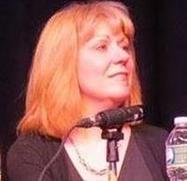 Bio: Susan Cossette is the author of Peggy Sue Messed Up . . . and other poems. Her work has appeared in Rust & Moth, Adelaide Literary Magazine, and Clockwise Cat, among others. She is a recipient of the University of Connecticut’s Wallace Stevens Poetry Prize. By day, she is communications director for Voices of September 11th, a nonprofit that works with those impacted by mass violence and terrorism. More of her work may be found at https://musepalace.wordpress.com. Sometimes Hips Lie Her mother used to say she had childbearing hips. It was supposed to be endearing, But the words clung to lips and stung in the pit of her stomach, Which she inherited. Her reaction was not merited, But in an all-girls school where cruel iterations of the same remarks would fester, She ravaged her body to release the pressure. She would show them that this frame was more than a vehicle for reproduction, That her hips did not exist for mere seduction and construction of a family life: A good wife. She would show them that she could bare things other than a child. Things like skipping meals While her mother made desperate appeals to a barren psychology: "To starve oneself is to gamble with the wealth of motherhood." She should have known that pelvic bones are not meant to protrude. She should have feared this collective hunger: Solitude. Now, they don’t talk about hips or biology. But to whom does she owe the apology? To the endocrinologists whose time they wasted as they copy-and-pasted their advice (“just eat more donuts”) year on year. To the science teachers whose instruction fell on deaf ears. To the friends and family whose lives she robbed of bouncing babies. To a partner whose inheritance will hang on ifs and maybes. To society whose loss or gain her ovaries preclude. Or to herself, for gambling with the wealth of motherhood.  Bio: Frankie is a nutritionist, journalist and spoken word artist based in Scotland. Her work explores public health, practical wisdom, and the curation of identity. She wrote her first rap, "Fair Play", at the age of 8, and has retained a passion for social justice ever since. 5/20/2017 0 Comments Poetry by Tim GoldstoneThe Promise and the Shadow Weeks since his bed was fit for human habitation. If he was strong enough he would leave it. He would get up – go now to get what he needs to stop this in an instant – but his shadow has caught him up, and pins him down, shaking him until he hurts and cramps, would willingly die. As she died she’d told him she’d outrun her shadow – but he must let his catch him. “Promise” she said. So he lies here now, for her, in the horror between sleep and dream. He closes his eyes – Conjures against his will a rotting wooden cabin clinging to a putrid swamp’s spitting side where splitting skulls chatter and bob on the sour stinking mud. He slinks through a syrup of acrid mist, wades through a nest of waiting cluster flies to his overdosed lover’s algae-covered lair. He is wearing filthy rags once his mourning suit over which a dripping lace of bile is forming. He runs under grey sky so low he must crouch until the muscles in his back squeeze his spine until tears flood his mouth and he can no longer cry out. Bent double he passes crumbling facades where gargoyles of his face as a child hiss appalling obscenities and he bites the insides of his wrists to still the manically bumping pulses. In the slime his bare footprints scuttle ahead of him filling with rainwater that immediately teems with squirming larvae. He reaches a barn that clatters and groans against the furious wind spies on her through the heavy stale incense drifting low where she swings upside down from a fraying hangman’s rope creaking as it twists – the noose fastened around her ankles. She is catching rats with her teeth by their tails as swifts flap by with unusual and exquisite leisure spitting on him. She has put out her blood in saucers for fleas and he laps from them so they can be close again. Clots in the blood make it bitter and chewy. He swallows and retches. She has attached a cat to a church bell to prevent its’ creeping up on dragonflies on whose wings are tattooed ‘fuck’ and ‘you’ and because only dead flowers grow here in the permanent cloying gloom he is wearing hawthorn as his button-hole which gnaws at his clammy skin, waking him on soiled sheets where on a spool of looped agony he yearns for the days when again and again, hand in hand, their elongated shadows streaming out behind them, they ran across rooftops to score – glamorous, ecstatic, invincible. Jimmy (1933 – 2013) Powdery-dark salt-aired finger-aching pre-dawn sea-city morning-cold is what Jimmy – landsailor now – he hates that name but doesn’t let it show – walks through again to his shift at the mill on still-unfamiliar unmoving terrain with its vague orange glow his too big creased and crumpled socks scrunching his every boot-lead step until he hesitates just a second too long misses his opportunity to cross the road. While he waits again a docker flicks away the stub of a rollie that glows through the flight of its arc and lands on the face of Jimmy’s street-lit shadow and a better boot than Jimmy’s scrunches it out with it’s metal heel plate and Jimmy’s toes curl around lumps of wool like babies’ fingers as he’s learned to do when he needs a drink but isn’t going to have one. Warsaw Water, Aleska would shout at passers-by, doesn’t mix with vodka, and told me many times of her first ever vodka drunk around a fire of pallets and tyres on a toyless windy camp-site where copying the adults she covered an opaque glass tumbler with the palm of her hand to stop the rain getting in. A year later I saw her break both her wrists. She was drunk at the bus stop again but lively and happy that day and small and fully pregnant she held out her arms as wide and expansively as she could possibly manage to show all of us her blissful world. Then abruptly the pavement was tugged and tipped at an awkward angle lurching her sideways as she desperately tried to keep her footing on the deck of a boat in a heavy swell, and as she toppled face first towards the concrete she shot out her hands in front of her for a dear life not her own. Amongst the Atlas Mountains Too high even for goats although not their meat, dried in strips; each long day measured out in stumbling mules through air carved from the stored warmth of towering rocks, moving illegal harvests in bales under tarpaulins on rickety carts down to the plains. When camped at last suspicion fell flickering from eye to eye in the shadows from the quick fire whose flames crackled like interrogation, nestling in huge boulders under sparklingly clear star-pricked velvet black skies whose aching beauty shocked you to your sleepless shaking paranoid bones. Bones you are convinced every single night will never be missed will never be found. 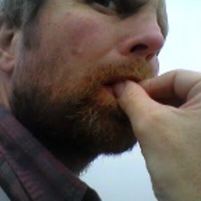 Bio: Tim Goldstone’s poetry and short stories have been published in various magazines and anthologies. Prose sequence read on stage at The Hay Festival. Contributor to TV, radio, theater. Worked and backpacked throughout Western and Eastern Europe and North Africa. Born in England, currently living in Wales. 5/20/2017 0 Comments Please Try Again by Rachel TannerPlease Try Again There’s somebody moving in across the street from where I live now. I can hear them yelling at each other, from car to truck to car to truck. There are at least ten of them. The ten of them remind me of the two of us, remind me of the days leading up to the first apartment that was equally yours and mine together. You stood in the kitchen and I sat in the living room of the home I’d lived in for three years and you’d lived in for one, packing and cleaning and throwing things away and cleaning and packing. Every so often I would find your paraphernalia, the remnants of the morphine that tried to take you from me a few too many times. Bent spoons Twisted q-tips Pieces of tinfoil Lead from a mechanical pencil (I still don’t understand what purpose that served?) Lighters Hidden anywhere you could reach – on top of cabinets, in shoes, behind the toilet. You were always the best at hiding, but eventually you got clean. Eventually we found you a Suboxone clinic to help your habit be more palatable, less life-altering. You were okay for awhile. People asked me what I did to get you clean, but I did nothing. You did the hard work; you bravely stepped away from your crutch and into the unknown. I merely stood beside you and held your hand. The people moving in across the street are laughing, and I can’t remember the last time my mouth ends turned upward. What I do remember is the day we finally moved into Our Apartment and I texted everyone pictures. “It’s OUR HOME!!!” I typed, delirious with happiness. I always told you that I understood how normal and inevitable relapses were. Nothing could rip me away from you. But you left me and sobriety on the same day, I guess forever, and we haven’t heard from Sober You since then. The last time you contacted me was two weeks ago and it was a threat, in my email inbox. A week before that it was a note left on my car, telling me that I’d die soon. I don’t know where or how you are, but I think about you all the time. I remember how you high-fived the guy from the moving company after you caught him staring at my ass, and I remember thinking that things couldn’t get better than this. I was right. Nothing got better.  Bio: Rachel Tanner is a writer from Alabama who thinks she's funny on Twitter (@rickit). Her work can be found in various places like Apocrypha and Abstractions, Transition, Cheap Pop, The Atticus Review, Pentimento, Empty Sink Publishing, etc. She's not afraid to cuddle all your pets and "like" all your profile pictures. 5/19/2017 0 Comments Poetry by Tom DolanSurrounded I stood with the others Forty maybe, all In silence Stopped and watching As he screamed "Madre!" To no reply Just how many cops and Firemen seem to be required To get a completely un- Cooperative subject strapped Down to a gurney might Surprise you, but Think double-digits I was walking the dog Others on their way To work or the Metro A few paced back and Forth, overnight Street-sleepers and no Fans of the sheriffs They used towels, as No one wants to get bit Beach-sized maybe, in a Scramble that resembled The early-man-felling-a- Wooly-mammoth tableau At the Natural History Museum The quarry, eventually Exhausted, gives up the Struggle (as we all know) In the drama's last act Glassy-eyed Spittle flying Desperate, tragic For SG We pretended we hadn't slept together That evening when we met them for drinks Smiles and stories and our secret inside The café on Auguststrasse Your radar was likely much better A woman's always is Looking back now I'm sure they knew or She did anyway—or had her suspicions But it was he that was angry later which I (now) know I should have anticipated and Understood and empathized with But should doesn't matter sometimes I hadn't planned on wanting you And I didn't care whether you planned me or not Your hair fell just so over your shoulder Your language probably has a special word just for that A Jump That time you said you wanted To kill yourself, not that first Time when you took all those Pills and stumbled around Mario's loaded, but that other Time when you said you were Tired of the world, Everyone in it, and That your son would be “Just fine.” That time when Your roommate was sobbing After you stormed out and When we all desperately Started sending texts Trying to figure out where you Might be. Should we call the cops? You scared the shit out of everyone Just so you know: That time sucked. But, We all need inflection points And sometimes hard stops Are the best. In moments of Crisis we need someone To put jumper cables on us Pump the gas, turn the key. When we're spent, unmoving, Dead in the ditch, we need Help. It doesn't matter how we Got there. Getting out matters. A jolt. A push. A tow truck Maybe. And there's no shame In that. If you've never driven Off the road then you've never Really stepped on it hard. A few days and we'll get This thing running like a top. You’ll see. C'mon, let's go. 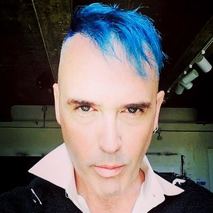 Bio: Tom Dolan is an artist, musician, and writer who lives and works in Los Angeles. He exhibited artwork internationally and puts words to music with the LA post-punk group, Fourwaycross. "Just cause I'm broke don't mean I need fixed" Wolf sings in Kill No More, the opening track off her latest album Country Pop Hit. Lo brings to mind Gillian Welch with a sense of humor and irony, but no less sincere and heartbreaking, as evidenced in the somber closing number Gone Are the Days... "of nothing left but the stain". Poetry, grit and wit are all effortlessly woven throughout a record that feels equal parts timeless and modern. "I think a true musical education requires you to face the parts of yourself that present struggles, darkness, misunderstanding, secrets—a lot like good lovers" Lo says, when asked from whence inspiration comes, quite simply or not so simply; different lovers. Here Lo walks us through "a house called Girl Island, misguided romances along the way, despair, time spent walking. busking and talking to people in the city" while leaving us with the sound reminder that we don't get to choose what saves us. AHC: What has this journey in music, so far, been like for you, the highs and the lows, and what life lessons do you feel you've picked up along the way? Lo: I have a fantasy of opening a music club called Lo’s, where the tag line is Less Talking More Music. What can I really add besides my songs themselves? Then, I’m reminded of being a little girl, getting back pictures from the developer and after sifting through countless landscape shots, imploring my mom, “More People!” Lone wolves do not exist—every living being needs a pack, needs guidance, needs to hear their yowls being yowled back. The highs come from these moments of connection and the lows represent the reverse. I’ve learned the only way out is through—if you don’t like it now, you will probably feel no differently with greater success. AHC: What first drew you to music and what was your early musical environment like growing up? Were there pivotal songs for you then that just floored you the moment you heard them? Lo: When I was four years old, I heard a man play the harp while telling stories at some kid’s event. I still remember the shape of his hands on the strings and the low timbre of his speaking voice. I think it’s the first time I realized words and music could be combined into a single experience. I used to listen to 92.5 Kiss Country every night as I fell asleep, to the bemusement of my Yankee family. I remember the feeling of my nerves being quieted down—country music of any kind still has that effect on me. AHC: Do you remember the first song that you ever wrote or played? Or that first moment when you picked up a pen and realized that you could create whole worlds just by putting it to paper? Lo: My first song was called Oh MaDilda and it consisted of three notes played on the piano in the living room. I played it incessantly and refused to change the name to the more commonly known Matilda. AHC: Which musicians have you learned the most from? Or writers, artists, filmmakers, teachers/mentors etc? Lo: I’ve learned the most about music from different lovers. Is there anything more edifying in the whole world than listening to someone you love’s favorite songs? I think a true musical education requires you to face the parts of yourself that present struggles, darkness, misunderstanding, secrets—a lot like good lovers. AHC: What do you think makes for a good song, as you're writing and composing, is there a sudden moment when you know you've found the right mix, that perfect angle of light, so to speak? Lo: A good song can be played in any any genre. A good song messes with your head. You can dance to a good song. I listen to songs I think are good over and over and over. That’s how I know it’s a live one, I think. Playing a song of my own to a close ear can help me know if I’ve found the light, but even then I am stubborn as hell in believing that whatever came to me in the trance of writing has purity to it. In schools for writing, they will tell you to murder your little darlings, the phrases to which you become attached that may not serve the piece. To me, songwriting demands you keep the little darlings and then find more. AHC: Do you consider music to be a type of healing art, even if only partially, an imperfect vehicle through which to translate the taste of a particular feeling, a state of rupture/rapture, hope lost and regained? Does the writing and creating of the song save you in the kinds of ways that it saves us, the listener? Lo: Music affects the unseen world—it charges the molecules in our environments with vibration, senses, memories, emotion. Music is not the only thing that has saved my life, but I sure as shit wouldn’t be alive without it. I don’t know much about all the ways of saving, but I had a dream once where Marvin Gaye and Bob Dylan sang “A Change’s A Gonna Come” to me in a barn. Danny DeVito made a guest vocal appearance as well. I guess you don’t get to choose what saves you. AHC: What are your fondest musical memories? In your house? In your neighborhood or town? On-tour, on-the-road? Lo: People laughing at lines in my song. The time someone said Lo Wolf fucked me up. Kissing in front of a street preacher. Sitting in the backseat on the way to Muscle Shoals and Memphis, tuning in and out. When I surprise myself with my own determination, in the bedrooms and living rooms and front porches and stoops on which I’ve written the songs. Singing Bottom of the World with a coworker in the dish pit somewhere in the coffee jungle. Laughing at myself when I am sitting cross legged on my bed, for tearing up while I’m trying to get out the words to a song. Everyone who has put a 5 or 10 or 20 in my tip bucket. One rainy June evening when I dripped into a bar downtown and heard a real live country duet band in Asheville and I shared a smoke with the lead singer. The way the song Mr. Tambourine Man has been stuck in my head for most of the seasons I’ve spent walking around this town. AHC: When you set out to write a song, how much does 'where the world is' in its current moment, culturally, politically, otherwise, influence the kinds of stories you set out to tell? Lo: In a live recording of Arlo Guthrie singing Amazing Grace, he tells a story where he says “There’s a whole lot of stuff in this world that needs to be turned around. The funny thing is, if you can’t do it for you, well then you can’t do it for the world.” Creating anything forces a political stand, regardless of affiliation or intention. I try not to set out to write much of anything—I pick up the guitar and if I’m good and lucky I end up with something to sing about. AHC: Do you have any words of advice or encouragement for other musicians and singer-songwriters out there who are just starting out and trying to find their voice and their way in this world? What are the kinds of things that you tell yourself when you begin to have doubts or are struggling with the creative process? Or what kinds of things have others told you that have helped push you past moments of self doubt/creative blocks? Lo: You sound how you sound. When people tell you what your songs mean after gigs, tell them you agree. Follow the exact opposite of my advice for people who are thinking about taking up smoking: Wait as long as you can and do it as little as possible for as long as possible. Keep banter to the barest minimum at open mic nights, for fucks’ sake. For myself, I have memorized a few key phrases to repeat when I have doubts. Before performances I often recite Eminem: “Better lose yourself in the music the moment you own it you better never let it go. You only got one chance do not miss your chance to blow this opportunity comes once in a lifetime.” When I have lulls between writing songs, I use Beyonce: “When they want a smash I just write another one.” And when I encounter the ubiquitous modern scourge of negative nellies, also known as haters, I use another one of her lines: “Radio says speed it up I just go slower.” AHC: You just released your new EP, Country Pop Hit, could you talk some about this record, how long it took to write and record and what the specific muses are for you on this one? Lo: I wrote the song Dead Boyfriends, the third track on the EP, about three years ago. It was the first song I wrote on guitar, in a house called Girl Island in West Asheville. I wasn’t going to include it on the record, but my friend Justin convinced me by telling me it’s his favorite. I do love playing this song out because I often find the audience laughs at certain lines. That is my favorite. The other three songs I wrote over the course of six months or so, last June to November 2016. Each of them were written far more quickly than Dead Boyfriends, which has morphed since its inception. They were written in a tiny hut in South Asheville, often practiced to the accompaniment of applause echoing from the nearby baseball stadium. I chose my friend Nathan to record it, because one time at a party he told me I made him believe in country music again. Laura Blackley sings and plays guitar on the record. We had some memorable rehearsals in that tiny hut and I traumatized her with the leftovers of my classical harp training. My journey to sobriety (from alcohol), some misguided romances along the way, despair, time spent walking and busking and talking to people in the city—those are the muses. For details: spin record. Country Pop Hit is available now via lowolf.bandcamp.com 5/18/2017 0 Comments Poetry by Michael SeegerAn Ache of Sadness Unpacking some old books that had been boxed up and stored inside a locked closet in my classroom, this morning, I found an old letter from you. It was handwritten in your familiar scrawl, filled with love and encouraging words about the future. I felt an ache of sadness and grieved for you like I hadn’t in a very long time. Transience I found in a book some leaves I had picked up from a road one rainy day last fall. I could not bear to let their beauty lie there on the cold, wet ground, waiting to disintegrate under the wheels of oblivious drivers. I tried to save them from their transience, as we all have tried in similar ways to save ourselves from time. It is nearly Spring, but these leaves, like memories, say to me, again, how fleeting everything is. And that no one can stop, not for a moment, the constant flow and inexorable passage of life. Changed An essence remains always lingering long after you have changed from a sense of loss-- lost love, youth, and childhood that you knew was inevitable all the while. Self-delusion is a coping mechanism for most to keep from stepping off of all the ledges and bridges in life. An eventual acceptance of that self, and others, comes one day like a warm breeze in an Indian summer when what you thought would never happen does and with its occurrence comes a kind of happiness that you know won’t last very long, either. What’s Requisite What’s requisite is water and some shade moving to a time as slow as roots along a stream where trout swim slowly in a dream of knowing not caught but foreseen. Finding Faith I’ve always loved words Counting them like stars That gave meaning Though words held meaning There were nights like stars When I found no words To hold meaning Which lay beyond words I found faith in stars -- Meaning words, not stars.  Bio: Michael Seeger is a poet and educator residing in the Coachella Valley near Palm Springs, California. Prior to his life as a middle school English instructor, he worked as a technical writer for a baseball card company and served as a Marine infantry officer during Desert Storm. He considers poetry a passion and writing generally a way of life. Michael’s poems have recently appeared in US poetry journals/publications like the Lummox Press, Better Than Starbucks, Anti-Heroin Chic, The Mindful Word and as finalists in several GoodReads contests. |
AuthorWrite something about yourself. No need to be fancy, just an overview. Archives
April 2024
Categories |

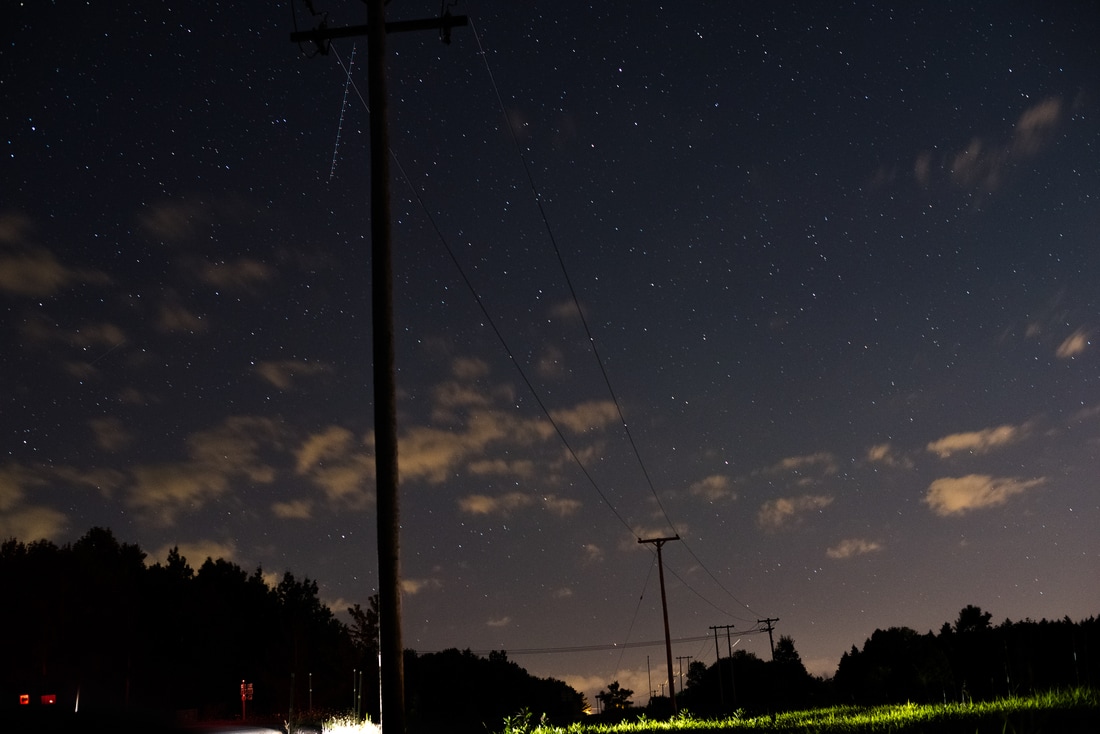
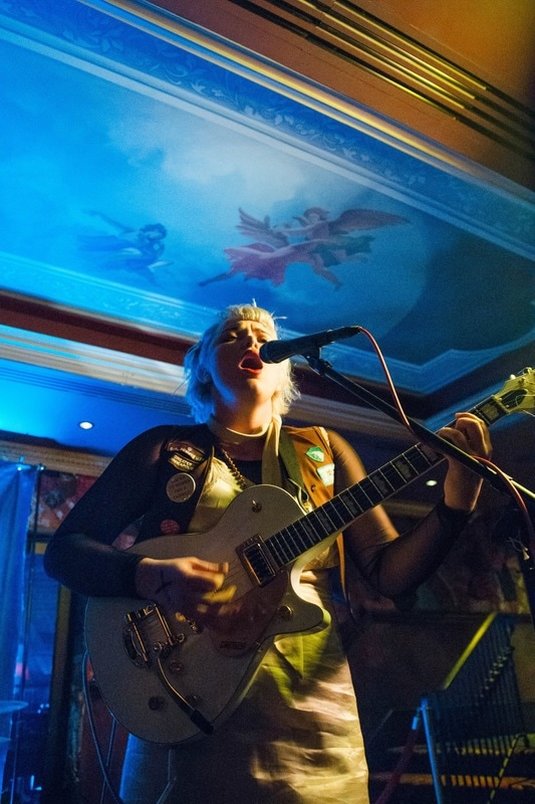
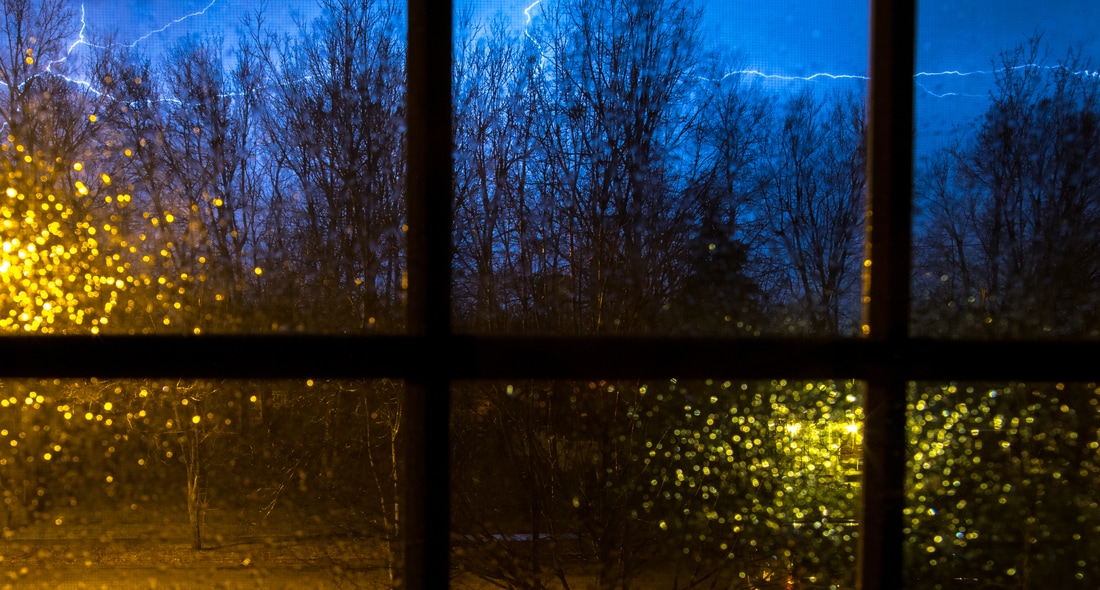

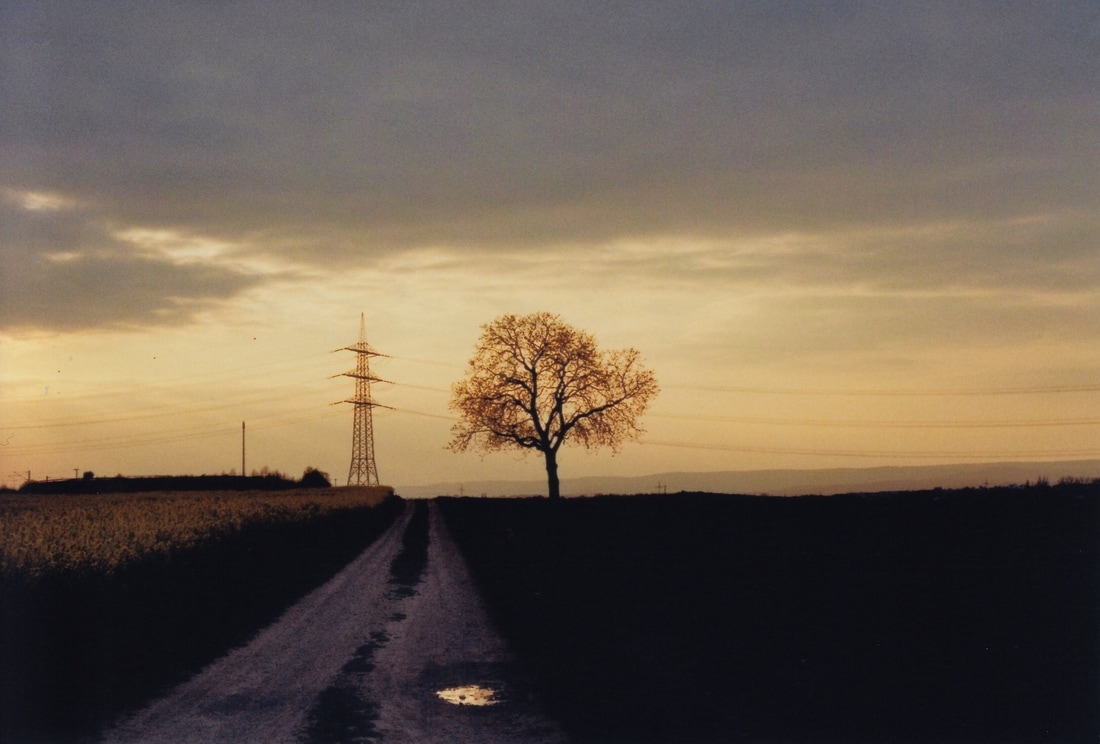


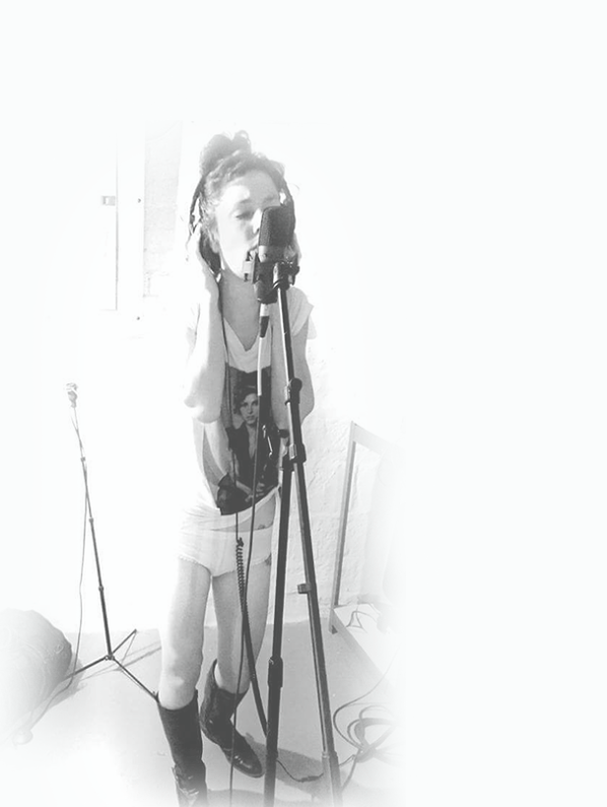

 RSS Feed
RSS Feed
